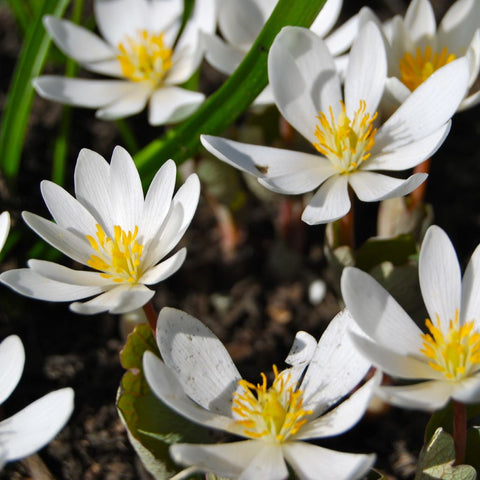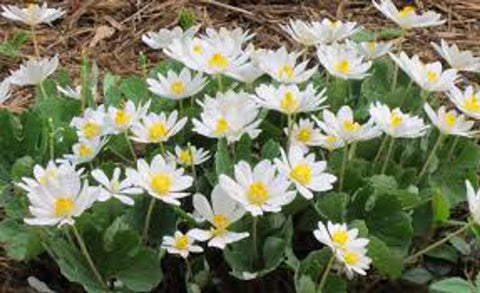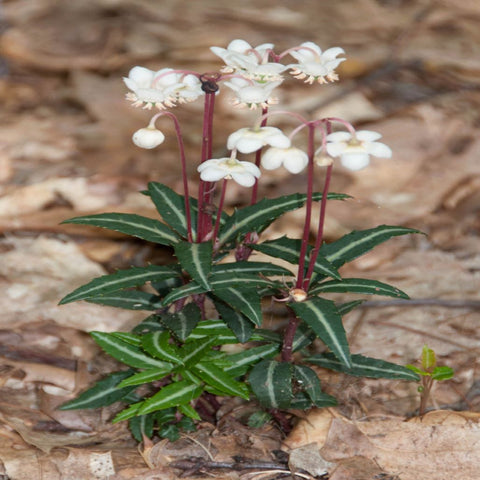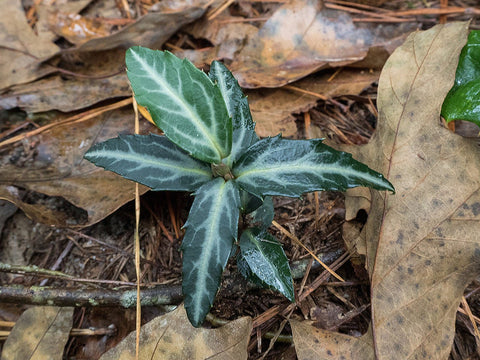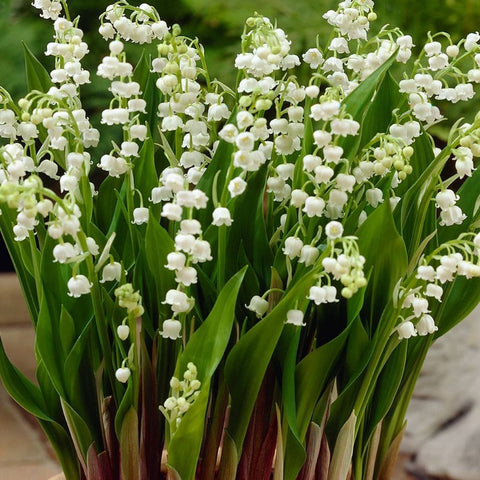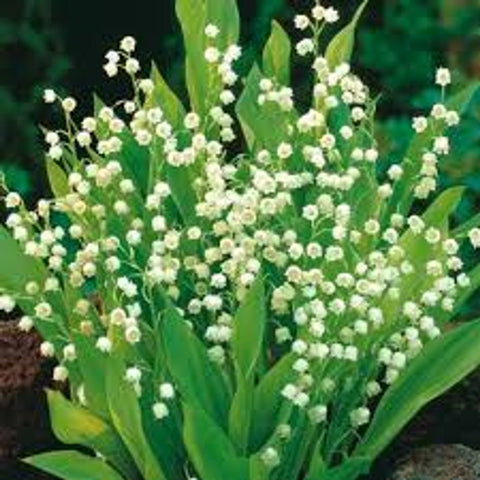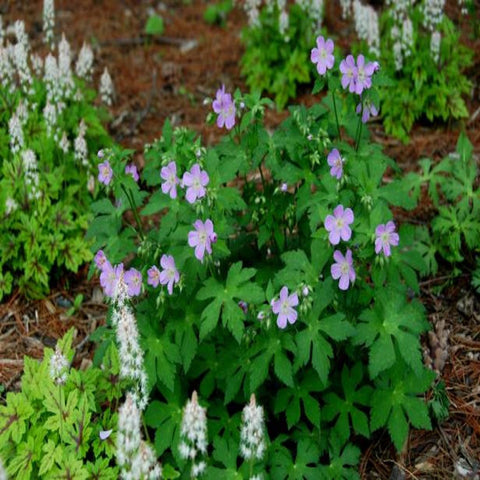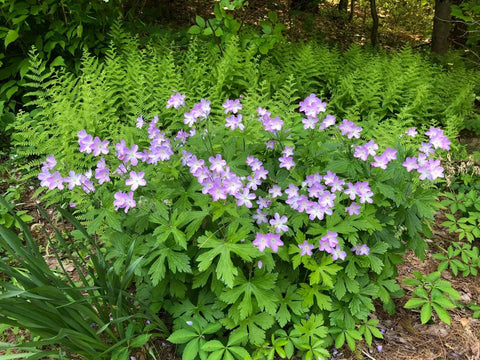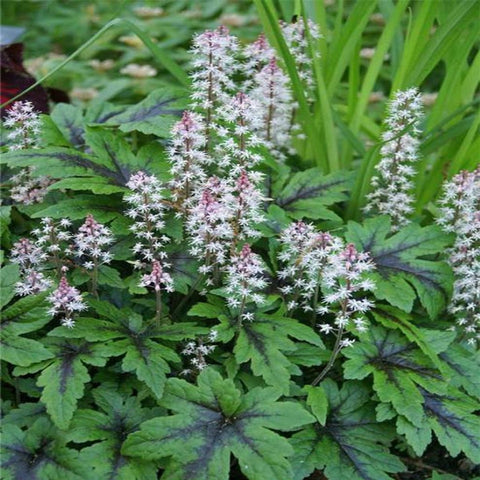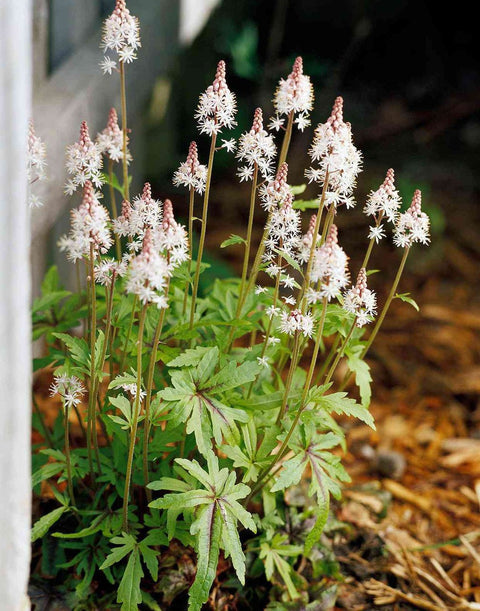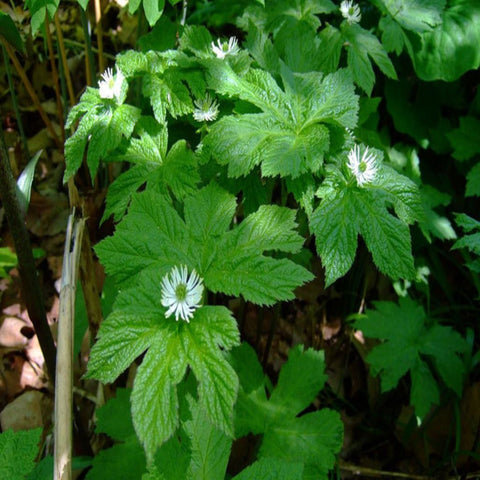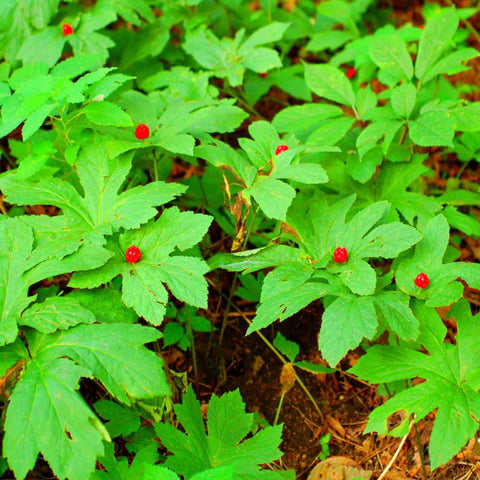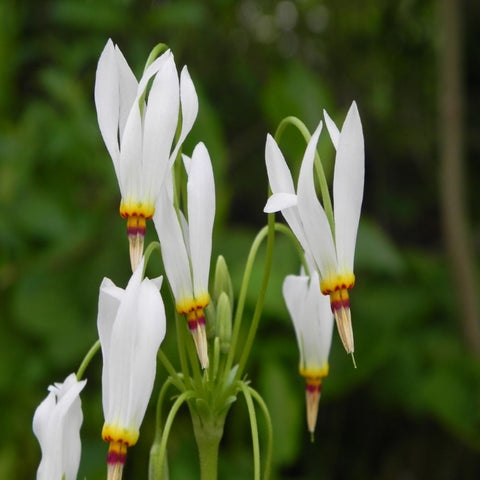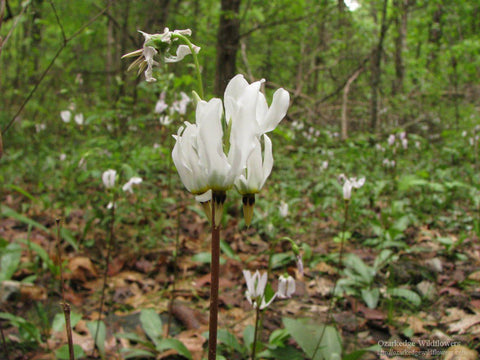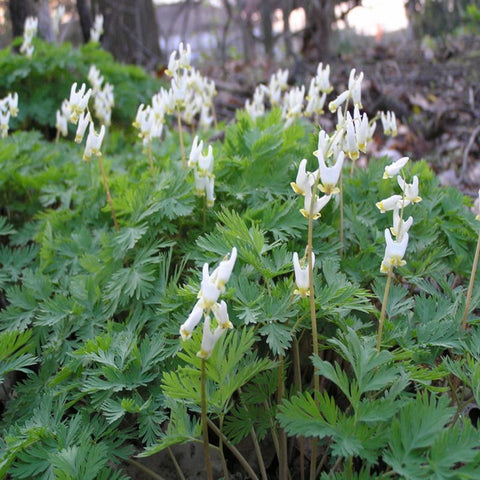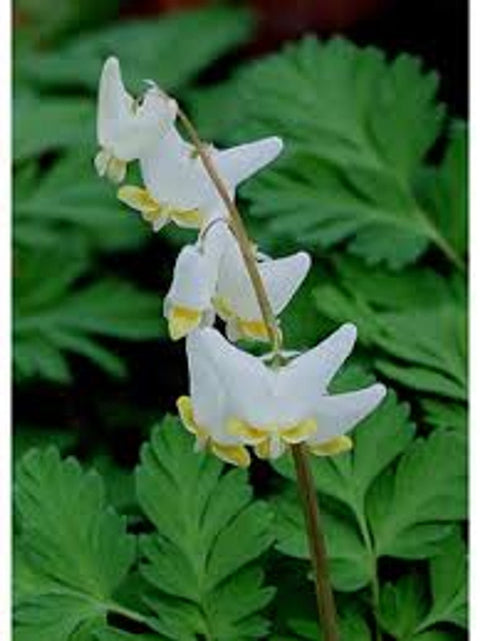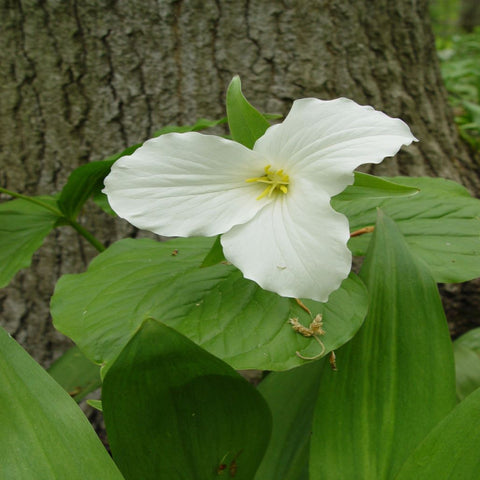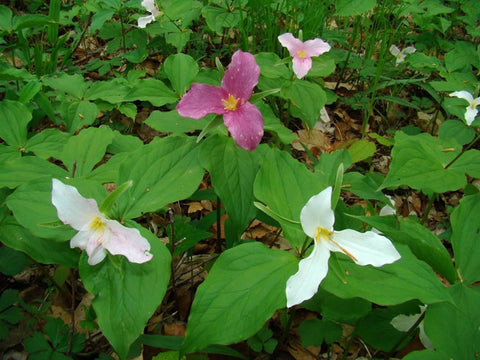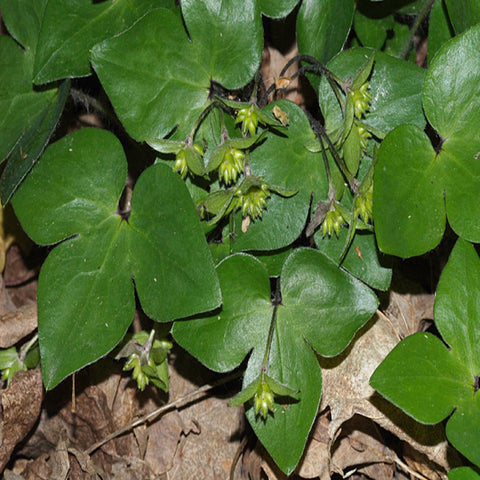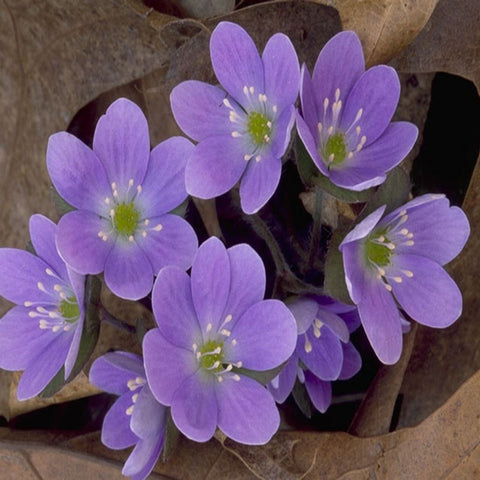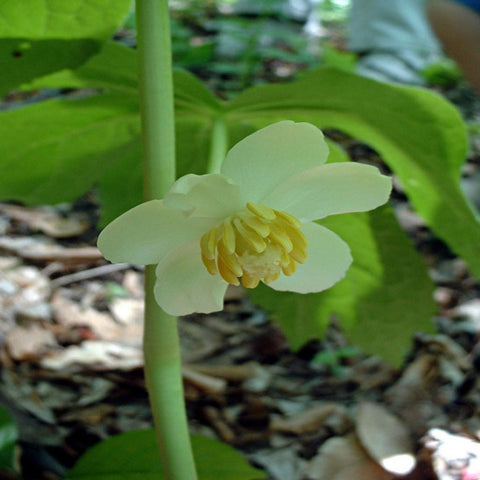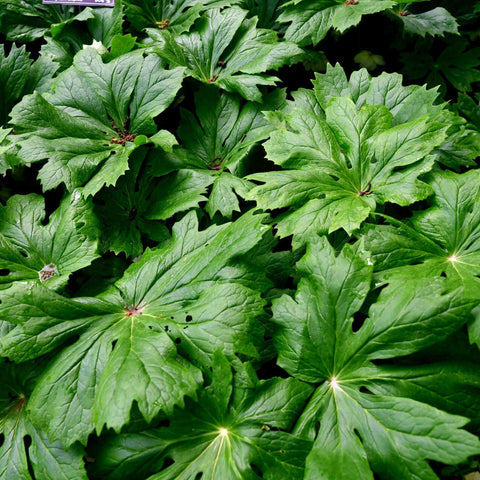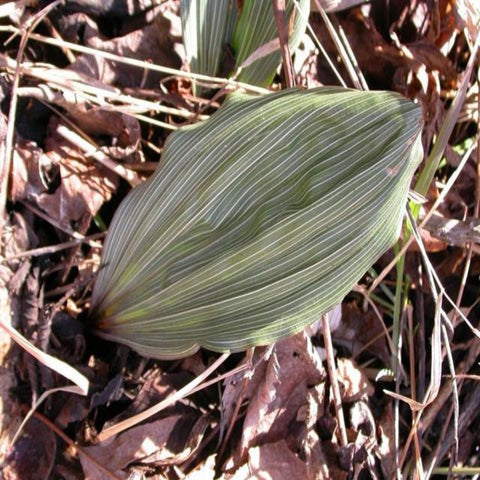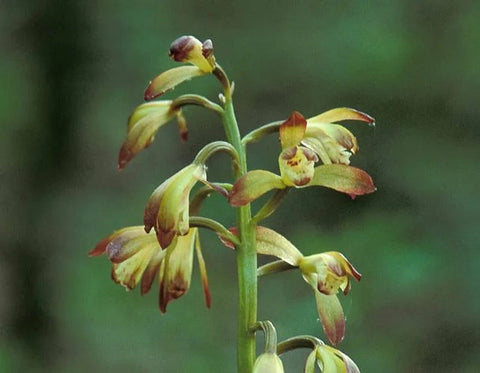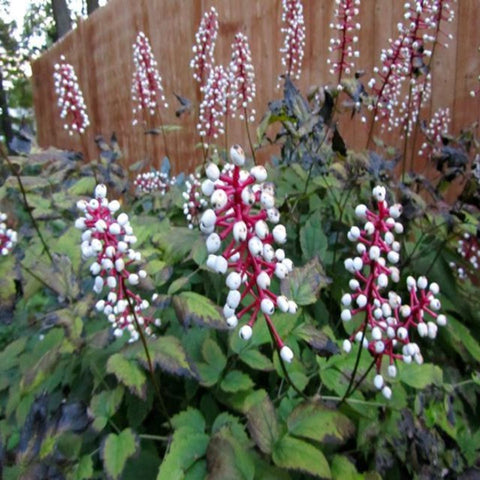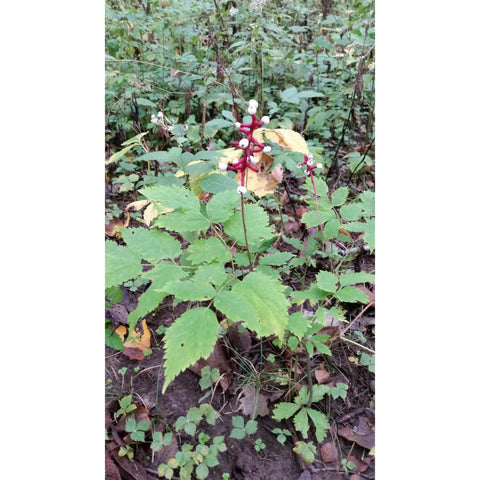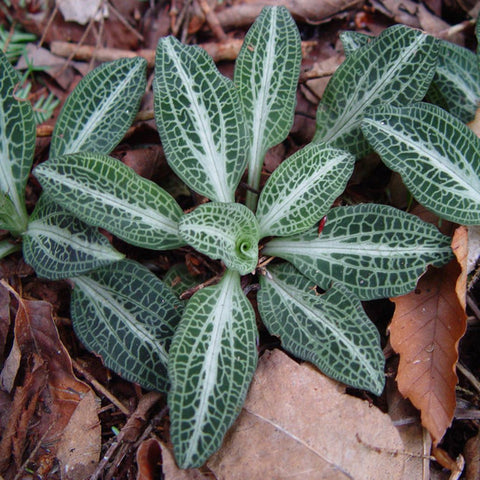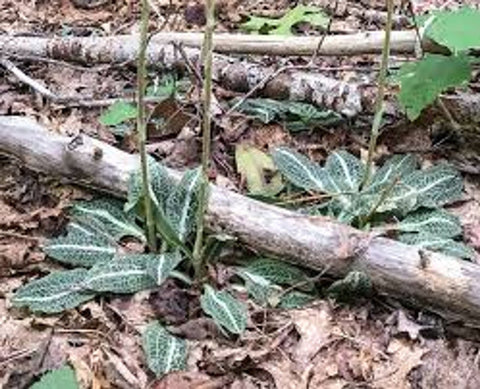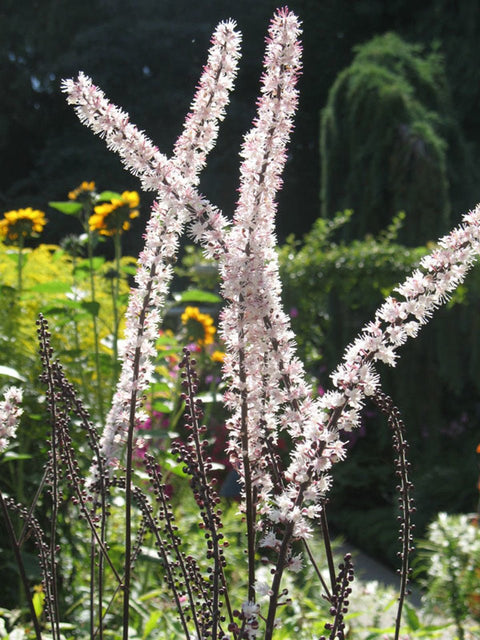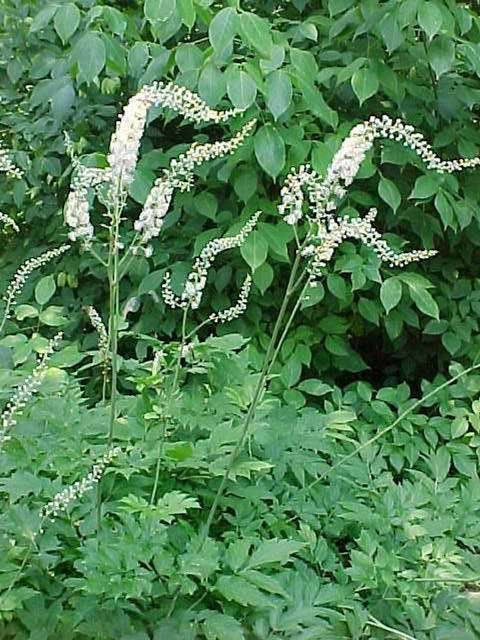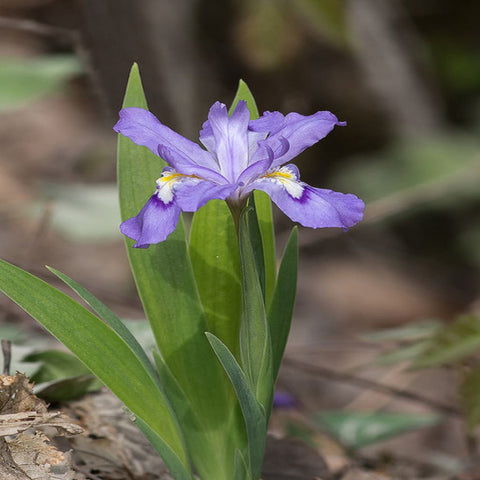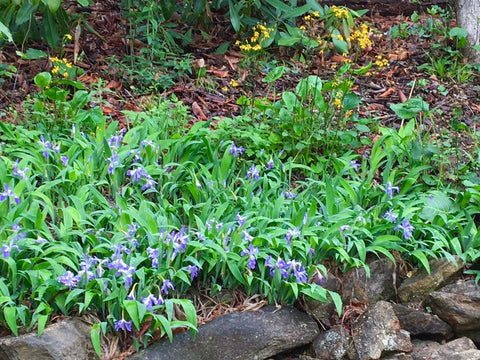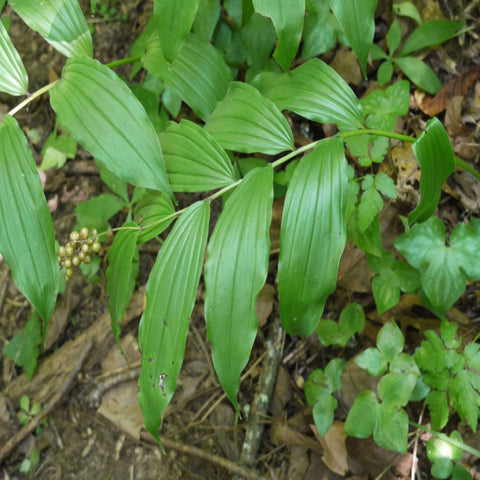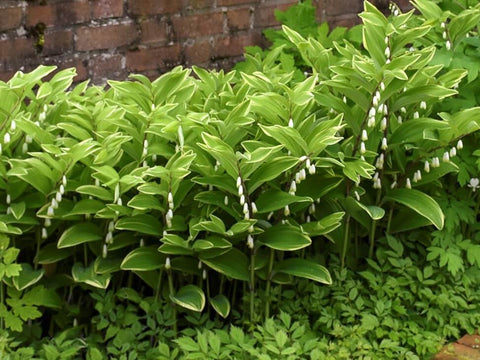17 products
White Flowering Perennials
White perennials are flowering plants with white-colored blooms that return year after year. They are famous for gardens because they provide a classic and timeless look that can complement any landscape design.
These perennials can come in different sizes, shapes, and forms, including small and delicate flowers, large and showy blooms, and even ornamental grasses with white seed heads. They can thrive in various soil types and growing conditions, making them versatile and adaptable to different environments.
In addition to their beauty, white perennials can have practical uses, such as attracting pollinators to your garden or serving as a natural pest deterrent. Overall, they are an excellent choice for gardeners looking to add elegance to their outdoor spaces.
Bloodroot (Sanguinaria canadensis) is a white perennial flowering plant native to eastern North America. It comes from the red sap that oozes from the roots and stems when cut or broken.
Where to buy white flowering perennials?
Get them at Nance Plants. The plant has lobed, palm-shaped leaves that grow up to 12 inches wide and stems that can reach up to 10 inches tall. In early spring, it produces a white flower with eight to twelve petals, lasting only a few days. After the flower fades, the plant has a single seed capsule.
Bloodroot has a history of use in traditional medicine, particularly by Indigenous peoples. It contains several biologically active compounds, including alkaloids, flavonoids, and saponins, that have been studied for their potential health benefits. However, it is essential to note that bloodroot can be toxic if ingested in large amounts and should be used cautiously.
In addition to its medicinal uses, bloodroot is also a popular ornamental plant in gardens, valued for its early spring blooms and attractive foliage. It prefers moist, partial shade and can be propagated by dividing the rhizomes in the fall.
Shooting star (Dodecatheon spp.) is a group of perennial plants native to North America. They are part of the Primrose family (Primulaceae) and are known for their attractive, star-shaped flowers that bloom in early spring.
The flowers of shooting star plants are drooping and appear on slender, leafless stems that can reach up to 12 inches tall. The petals are usually pink, lavender, or white, with a distinct yellow or white "eye" at the center of the flower. The leaves are basal, meaning they grow directly from the ground, and are usually lance-shaped or oval.
Shooting star plants prefer moist, well-drained soil and partial shade. They are typically found in woodlands or meadows and are particularly well-suited to rock or wildflower gardens. They are also essential pollinator plants, attracting various bees and butterflies.
There are several species of shooting star, including the most common one, Dodecatheon media, which is native to much of North America. Shooting stars are also commonly cultivated for their ornamental value, and many cultivars are available with different flower colors and forms.
What white flowering perennials are for sale?
Shooting star (Dodecatheon spp.) is a group of perennial plants native to North America. They are part of the Primrose family (Primulaceae) and are known for their attractive, star-shaped flowers that bloom in early spring.
The flowers of shooting star plants are drooping and appear on slender, leafless stems that can reach up to 12 inches tall. The petals are usually pink, lavender, or white, with a distinct yellow or white "eye" at the center of the flower. The leaves are basal, meaning they grow directly from the ground, and are usually lance-shaped or oval.
Shooting star plants prefer moist, well-drained soil and partial shade. They are typically found in woodlands or meadows and are particularly well-suited to rock or wildflower gardens. They are also essential pollinator plants, attracting various bees and butterflies.
There are several species of shooting star, including the most common one, Dodecatheon media, which is native to much of North America. Shooting stars are also commonly cultivated for their ornamental value, and many cultivars are available with different flower colors and forms.
Bloodroot (Sanguinaria canadensis) is a perennial herbaceous plant native to eastern North America. It is a poppy family (Papaveraceae) member and is known for its unique beauty appearance and medicinal uses.
The plant gets its name from the bright red sap that oozes from the stem and roots when they are cut or broken. Native American tribes historically used the sap for a variety of medicinal purposes, including as a treatment for skin conditions, coughs, and rheumatism.
Bloodroot plants typically grow about 6-12 inches tall and have distinctive lobed leaves that are 3-6 inches wide. In the spring, the plants produce a single white flower that lasts only a few days. The flower is typically 1-2 inches in diameter and has numerous yellow stamens.
Bloodroot plants prefer moist, well-drained soil and partial to full shade. They are often found growing in wooded areas, streams and rivers, and other moist habitats.

